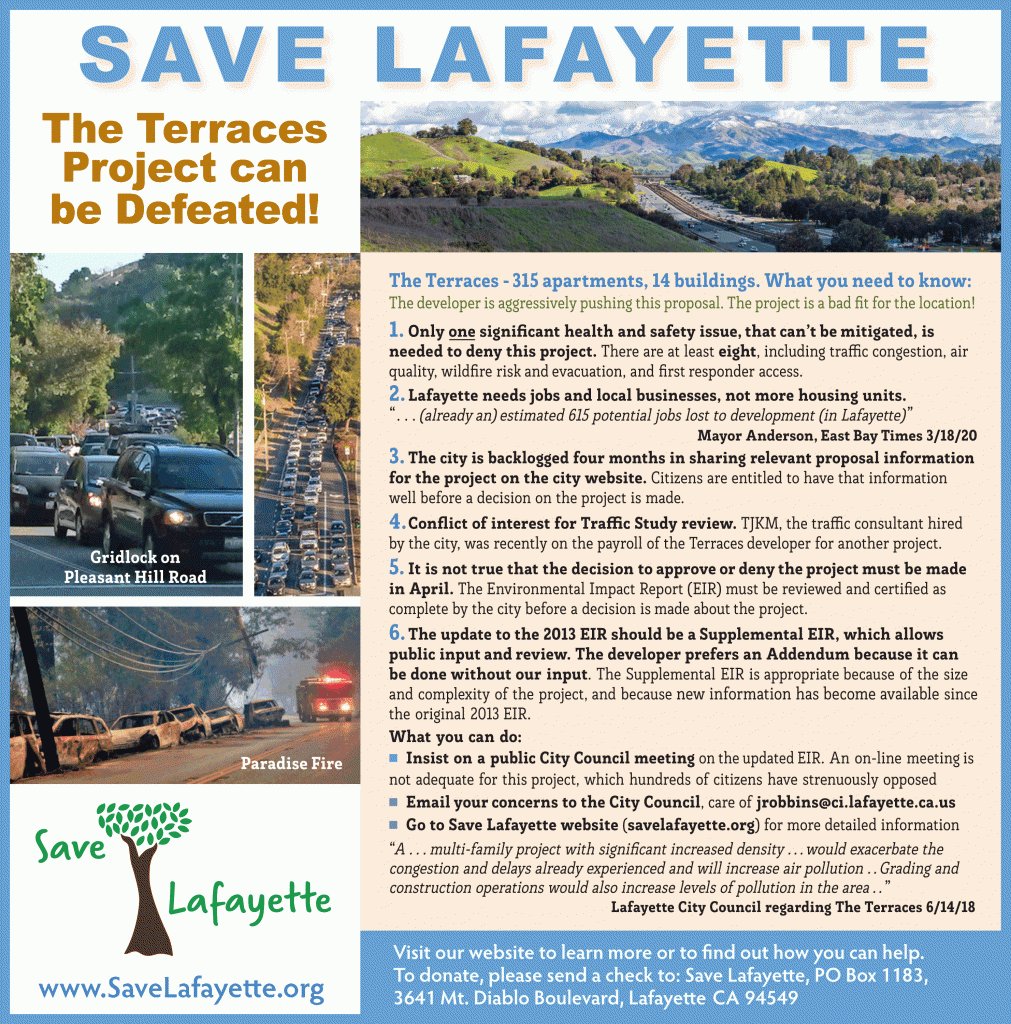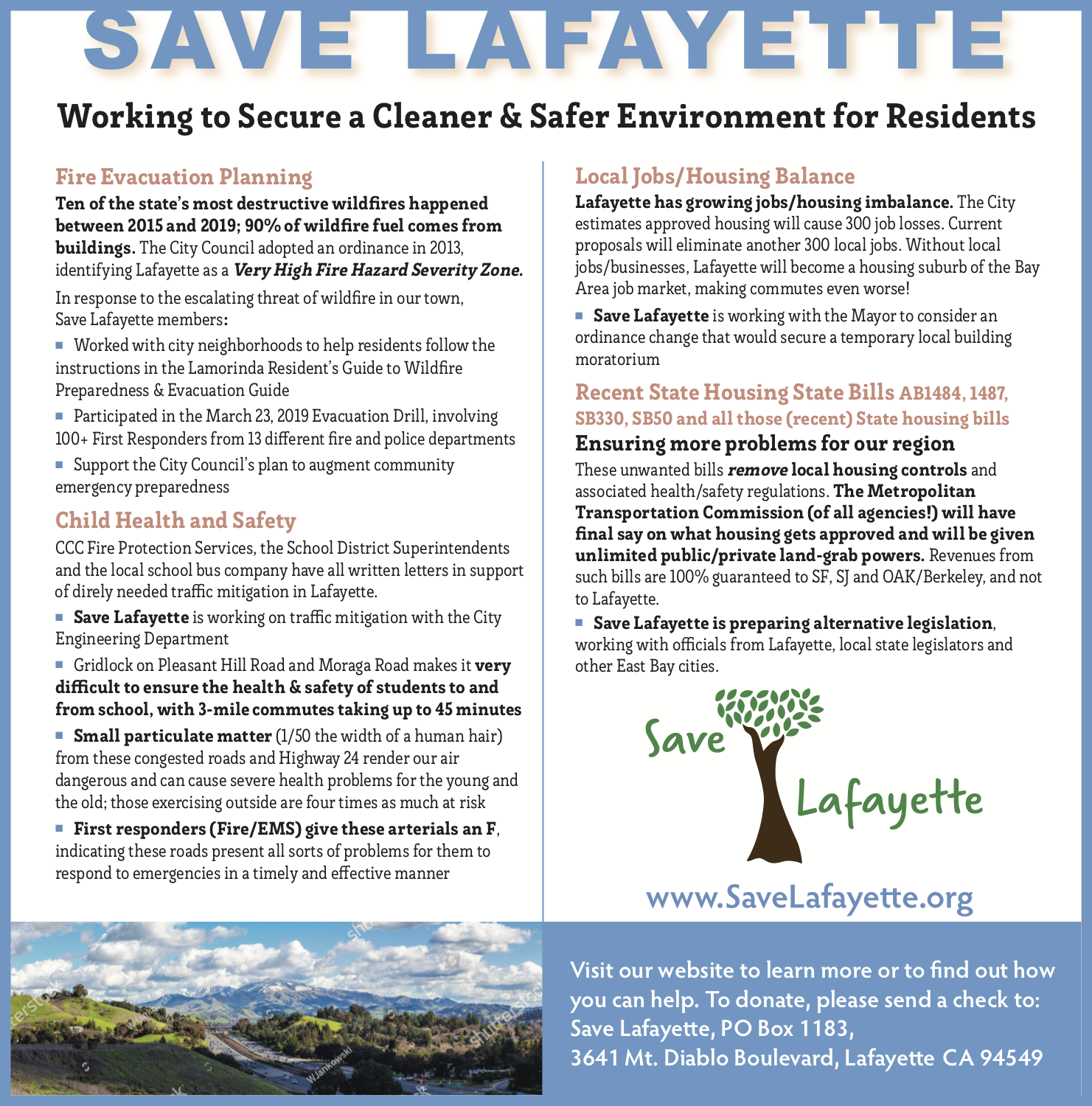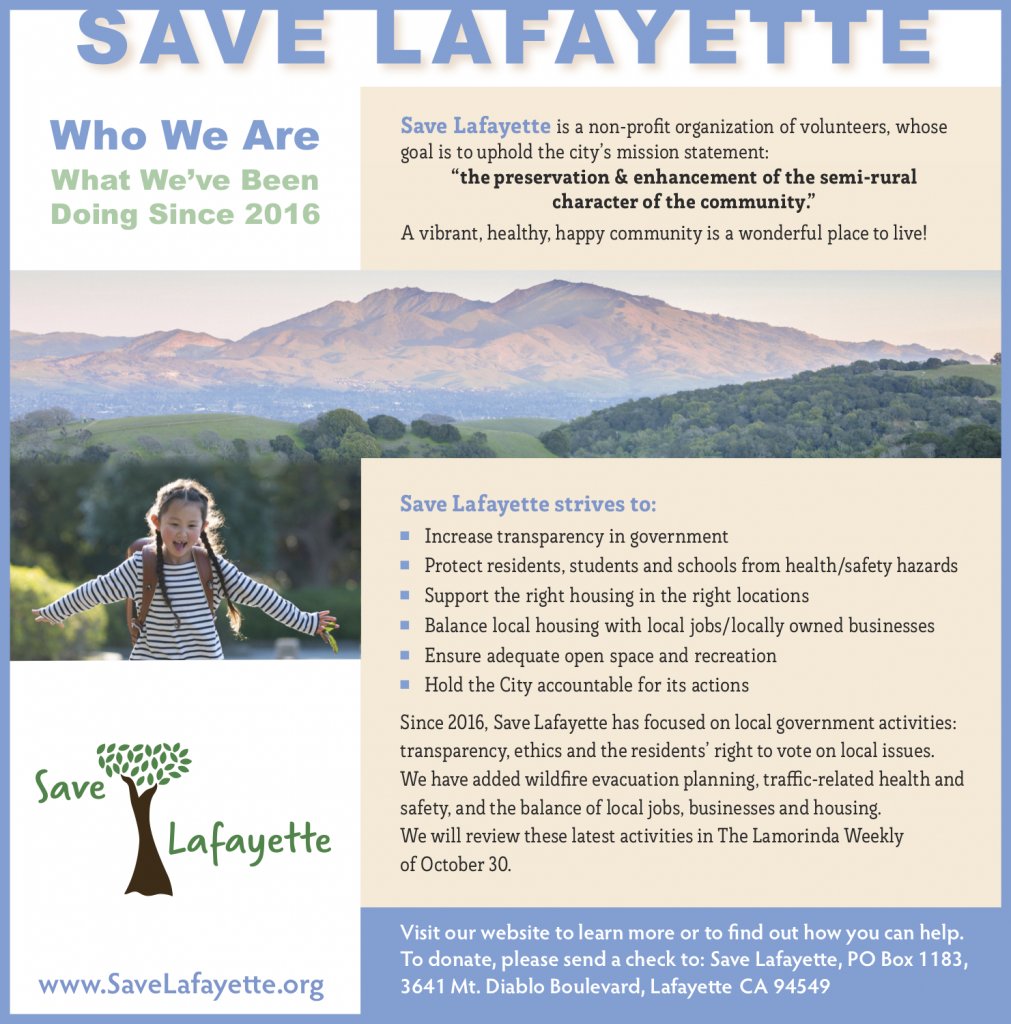April 2, 2020
Save Lafayette,
3220 Ronino Way,
Lafayette CA. 94549
Attached: Terraces of Lafayette Traffic Impact Study Report Review
Re: Terraces of Lafayette Updated Traffic Impact Study
Dear Planning Commissioners
As you are aware, Save Lafayette has expressed serious reservations in the past
about using TJKM to undertake an updated traffic study for the Terraces, because
of its conflict of interest in having been previously hired by the developer. Since
City staff showed no interest in correcting this situation, Save Lafayette decided to
hire an independent traffic consultant to undertake a peer review of the January
2020 updated report prepared by TJKM.
Save Lafayette has hired Elite Transportation Group, whose principals – Lawrence
Liao and Lin Zhang – are highly experienced and respected traffic engineers, with
clients such as BART, SFMTA, the Federal Highway Administration, and
Caltrans, as well as various Bay Area cities. A copy of the peer review memo
prepared by Dr. Zhang is attached for you to read.
You will see from the memo that it raises numerous significant issues and
shortcomings with the TJKM report, all of which will need to be addressed before
it can be accepted and included in the supplemental EIR for the Project.
Following are some of the major issues raised by Dr. Zhang in his memo:
- The Delay Indexes used by TJKM for Pleasant Hill Road and Highway 24
are based on outdated (2013) information and therefore significantly under-
estimated. Based on the correct data, the project would have an un-
mitigatable significant adverse impact on Pleasant Hill Road. - The emergency vehicle preemption (EVP) system recommended by TJKM
as a mitigation measure to offset the impact of the project on emergency
vehicle access will NOT work during congested or peak times. This is
therefore also a significant adverse impact that cannot be mitigated. - The impacts during construction have incorrectly assumed an 8-hour
workday and therefore significantly understate the impacts of dump truck
traffic on local streets during the massive grading that would be required.
Yet another significant adverse impact. - The impact of the significant reduction in the size of the passenger pick-up
zone on the west side of Pleasant Hill Road, south of Deer Hill Road has not
been considered. - The safety conflicts between the proposed bike lane, trap lane, loading zone
and entrance driveway on Pleasant Hill Road have not been adequately
reviewed. - The property’s location in a VHFHSZ fire zone and the proposed project’s
impact on evacuation routes and emergency first-responder access have not
been considered and should have been. Also, the impacts of PG&E power
shut-offs have not been considered. These are all serious safety
shortcomings in this new reality of high fire risk. - The impact of the project on the intersection of Deer Hill Road and Laurel
Drive has not been considered.
In conclusion, the TJKM report is inadequate and needs to be revised before it can
be accepted as part of the EIR. Alternatively, you can deny the project based on
the unmitigable issues raised in the Elite memo. We therefore request that you
allow fifteen minutes for Dr. Zhang and his colleague to present their findings at
the next Commission meeting on April 27.
In addition, as you know, a project can be denied if there is just one significant
adverse impact that cannot be mitigated. There are numerous un-mitigable
problems with The Terraces. Additional new and essential EIR related material
that is being prepared by Impact Science should be made available for the public to
review at least a month before any further meetings are scheduled on the Terraces
proposal. Many of these are significant health and safety issues – this project
would literally put people’s lives at risk. Lafayette is allowing plenty of new
housing elsewhere in more suitable locations – this project is not worth the risks
and should not be rushed through without the opportunity for full public
participation.
Sincerely,
Michael Griffiths
President, Save Lafayette
Attached: Terraces of Lafayette Traffic Impact Study Report Review


